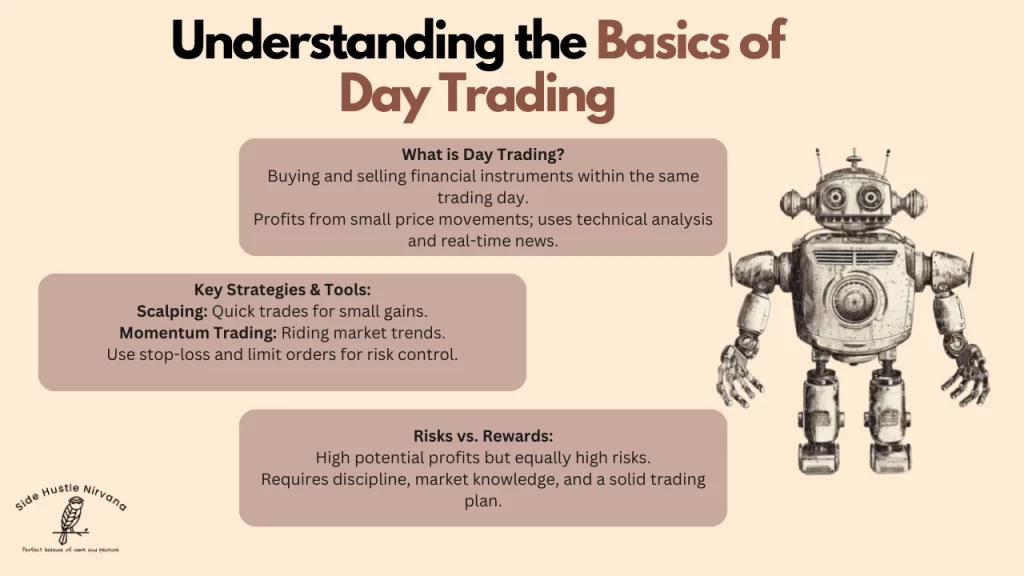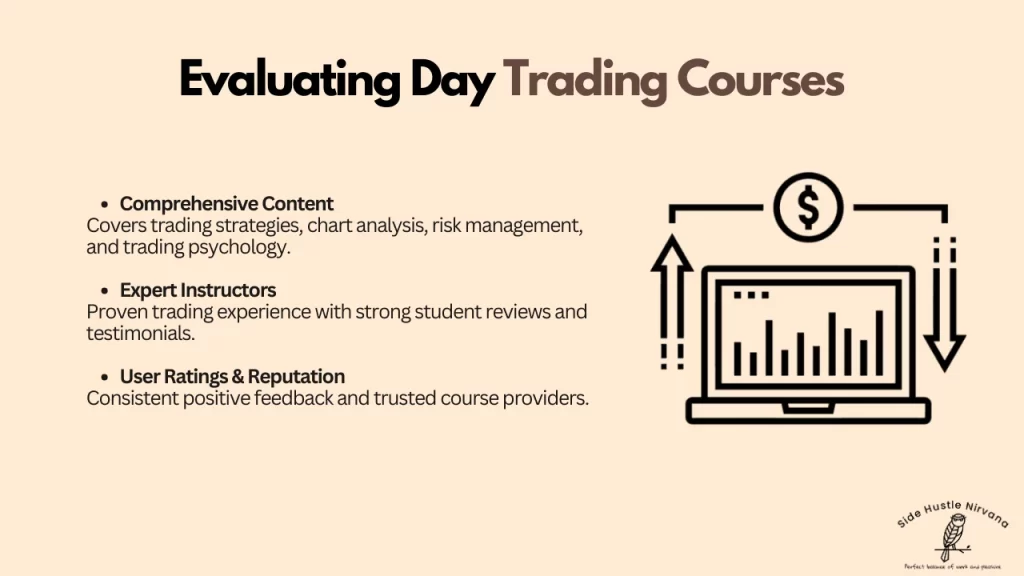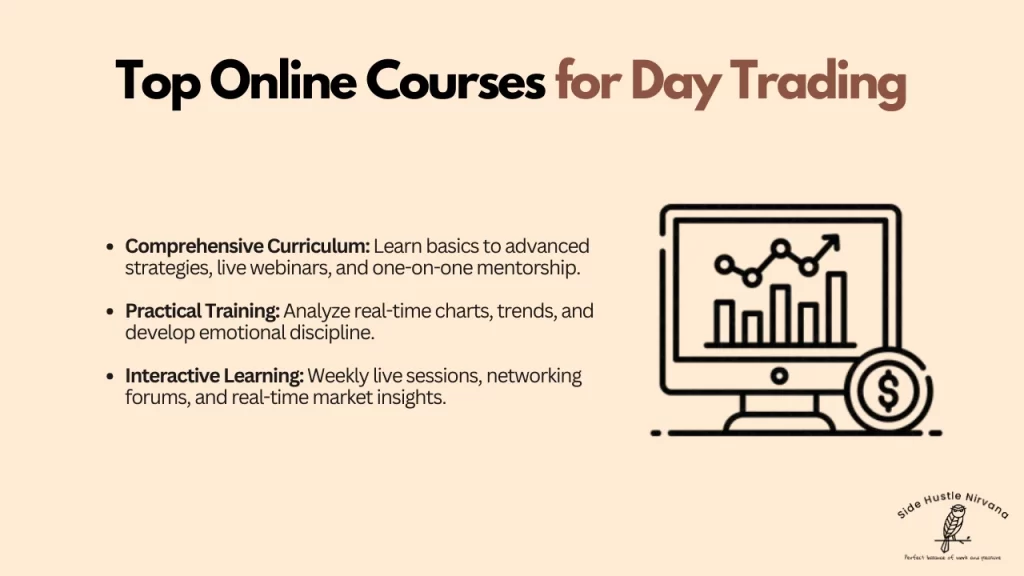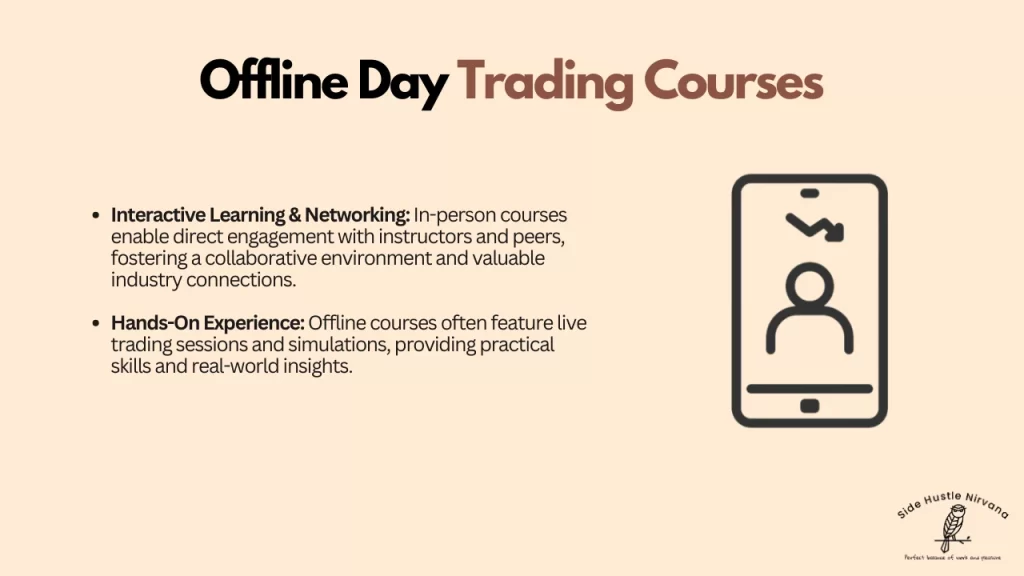Best Educational Courses for Learning Day Trading
Understanding the Basics of Day Trading

Day trading is a form of trading where financial instruments such as stocks, options, currencies, and futures are bought and sold within the same trading day. This practice is primarily conducted through online platforms, allowing traders to capitalize on short-term price movements. Unlike long-term investing, day trading relies heavily on technical analysis and market trends.
Day traders must be equipped with a deep understanding of market dynamics and the discipline to execute trades promptly. Given its fast-paced nature, day trading can be both exhilarating and daunting. It’s essential for aspiring day traders to arm themselves with the foundational knowledge necessary for successful trading. Additionally, a robust trading plan that outlines entry and exit strategies, risk management techniques, and performance evaluation criteria is vital for navigating the complexities of the market.
What is Day Trading?
At its core, day trading involves executing numerous trades throughout the day, often holding positions for just a few minutes to hours. The goal is to profit from small price fluctuations that can occur within a single trading session. Day traders typically use leverage to amplify their returns, which can significantly increase risk.
In essence, day trading is more of a trading strategy than a specific genre of trading. It encompasses various styles and can be executed using different analysis techniques, making it adaptable to a trader’s unique preferences and risk appetite. Many day traders also rely on real-time news feeds and economic indicators to inform their trading decisions, as external events can rapidly influence market sentiment and price movements.
Key Terms in Day Trading
To effectively navigate the world of day trading, one must become familiar with a set of key terms and metrics. Understanding these terms is crucial for successful participation in the market. Here are some important terms:
- Scalping: A strategy involving quick trades to profit from small price changes.
- Momentum Trading: Capitalizing on market trends to exploit significant price movements.
- Limit Order: An order to buy or sell at a specified price or better.
- Short Selling: Selling an asset with the hope of buying it back at a lower price.
- Stop-Loss Order: An order placed to limit potential losses by selling a security when it reaches a certain price.
Risks and Rewards of Day Trading
Like any form of trading, day trading comes with its own set of risks and rewards. On one hand, the potential for significant profits exists, thanks to the leverage provided by brokers and the volatility of financial markets. Successful day traders can make substantial income, often exceeding those of more traditional investment strategies.
However, the risks cannot be overlooked. Day trading requires a sharp focus, a solid understanding of market psychology, and the ability to make swift decisions. Many traders experience substantial losses, especially in the early stages of their trading careers. Therefore, managing risks through strategies such as stop-loss orders is crucial. Moreover, emotional discipline plays a significant role; traders must resist the urge to chase losses or deviate from their established trading plans, as impulsive decisions can lead to further financial setbacks. The psychological aspect of day trading is often underestimated, yet it is a key factor that can determine a trader’s long-term success or failure.
Evaluating Day Trading Courses

Choosing the right educational course can significantly impact your journey as a day trader. As the market is flooded with various options, it’s imperative to evaluate the courses thoroughly. Below are several key aspects to consider when selecting a day trading course.
Course Content and Structure
The content of a day trading course should cover an array of important topics to equip you with the tools necessary for making informed trades. Look for courses that explain key trading strategies, chart analysis, risk management, and trading psychology.
A well-structured course will typically include a combination of video lessons, readings, interactive quizzes, and practical assignments. This multifaceted approach facilitates a comprehensive learning experience that can improve skills more effectively than traditional lecture-based formats.
Instructor’s Trading Experience
Another critical factor to consider is the instructor’s trading background. Experienced traders who have successfully navigated the challenges of the market bring invaluable insights that can accelerate the learning process. Instructors with a proven track record often provide both optimism and realism regarding what it takes to succeed.
It’s beneficial to research the instructor’s trading history, as well as any reviews or testimonials from previous students. Their experiences may reveal how well the instructor can convey complex concepts and whether they are approachable for questions and support.
User Reviews and Ratings
User reviews and ratings serve as a valuable metric for assessing a course’s effectiveness. Check for platforms that specify the experiences of past students, offering a glimpse into the course’s impact on their trading careers. Look for consistent themes, both positive and negative, to gauge what you can expect.
Additionally, consider the overall reputation of the course provider. Well-respected institutions often uphold high standards of instruction and offer robust resources that enrich the student experience.
Top Online Courses for Day Trading

Several online platforms have gained recognition for providing quality education in day trading. Here are some top courses that have garnered positive feedback from users and industry professionals.
Course 1: Overview and Features
This course offers an extensive curriculum covering everything from basic concepts to advanced trading strategies. With a blend of video lectures, live webinars, and one-on-one mentorship, students gain hands-on experience. The interactive community forum allows for networking with fellow traders and gaining insights into their experiences, which enhances learning.
Course 2: Overview and Features
This particular course focuses on technical analysis and its application in day trading. It includes a significant amount of practical training where students analyze real-time charts and trends. The course also discusses emotional discipline and how it affects trading outcomes, emphasizing the psychological aspects of trading.
Course 3: Overview and Features
This course is tailored for both beginners and experienced traders. It encompasses various trading styles, providing students with the flexibility to choose what suits them best. The inclusion of weekly live trading sessions creates an immersive learning environment, where strategies are applied in real-time markets, reinforcing theoretical knowledge.
Offline Day Trading Courses

While online learning has its benefits, some individuals thrive in a traditional classroom setting. Offline courses provide opportunities for in-person interaction, which can enhance the learning experience significantly.
Benefits of In-Person Learning
In-person day trading courses allow for direct engagement with instructors and fellow participants. This setting fosters a collaborative learning environment, where traders can share insights, experiences, and strategies in real-time. The ability to ask immediate questions and receive feedback can lead to a more enriching educational experience.
Additionally, offline courses often facilitate networking opportunities, enabling students to build connections that could prove beneficial as they advance in their trading careers.
Top Offline Courses and Their Features
Some well-established institutions offer high-quality day trading courses in a classroom format. These courses typically provide a structured curriculum, emphasizing hands-on trading experience through simulated environments and live trading sessions. Furthermore, they may include guest lectures from successful traders, offering invaluable perspectives on the industry.
Consider researching local institutions or trading academies to find a suitable offline course. Keep an eye out for their curriculum content, instructor qualifications, and feedback from previous participants to make an informed decision.
In conclusion, whether you choose online or offline courses, dedicating time to learn the intricacies of day trading can position you for success in this fast-paced environment. By selecting the right educational resources, you can build a strong foundation, enabling you to navigate the complexities of the market effectively.







